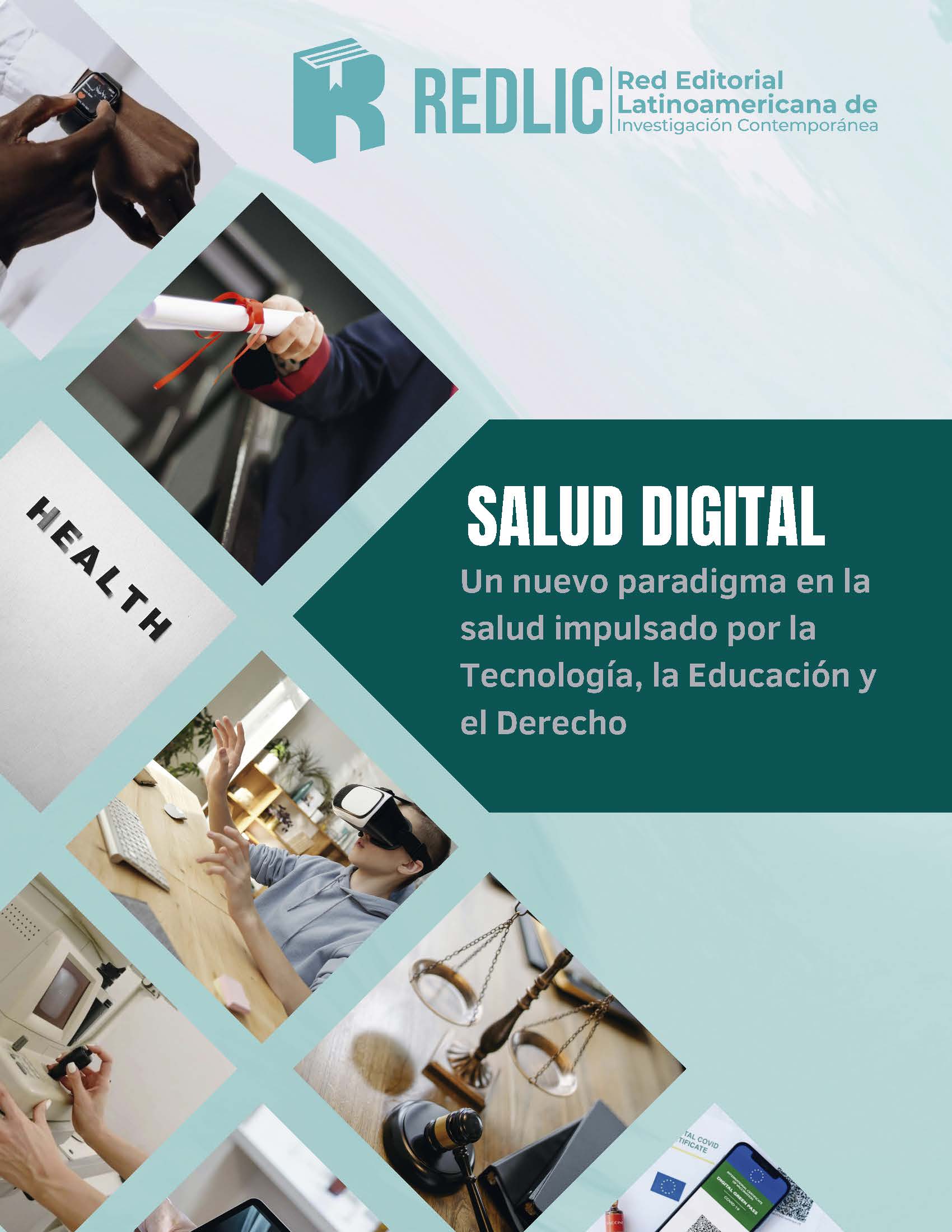Publicación en la Editorial REDLIC
Estimados investigadores:
Nos complace anunciar que contamos con las siguientes vacantes en el Catálogo de Prensa.
1. Editores de sección [7]
2. Editores asociados [10]
In the contemporary era, digital health emerges as a transformative field, integrating technology, education and law to reinvent the way we understand and manage health. This book, titled Digital Health: A new paradigm in health driven by Technology, Education and Law, aims to explore the multiple dimensions of this revolution.
Technology has burst into the health field with unprecedented force, offering innovative solutions ranging from telemedicine and wearable monitoring devices to artificial intelligence and big data management. These tools not only enhance diagnostic and therapeutic capacity, but also democratize access to health care, breaking geographical and socioeconomic barriers.
Education, for its part, plays a crucial role in the integration of these technologies into clinical practice. The continuous training of health professionals, as well as the digital literacy of patients, becomes essential to maximize the benefits of digital health.
Through a multidisciplinary perspective, this book offers a comprehensive vision of digital health. It is aimed at health professionals, educators, policymakers, researchers and anyone interested in understanding how the convergence of technology, education and law is redefining the health landscape.
We invite the reader to embark on this journey towards the future of health, a future where digitalization promises not only to improve clinical outcomes, but also to humanize healthcare, making it more accessible, efficient and patient-centered.
Digital health is not just a passing trend; It is the new paradigm that will guide the evolution of health in the 21st century. Welcome to this exploration of a promising future.
Dr. Andrés Ramírez, PhD.
Research Professor
Alcalá, L. (2017). Alfabetización mediática para la inclusión de personas mayores. Costa Rica. Obtenido de Dykinson, S.L. https://www.jstor.org/stable/j.ctt1qqhfg5
Barsuk et al. (2009). Use of simulation-based education to reduce catheter-related. Arch Intern Med, 1420 - 1423.
Correa. (2008). Neurociencia aplicada: el cerebro al servicio de la humanidad. Revista Electrónica de Divulgación, 38-40.
Garrido et al. (2012). Investigación y protección de datos personales en atención Primaria". España.
Hil. (2017). Implicaciones éticas de una sociedad cada vez más gobernada por algoritmos. España.
Kant, I. (1785). Grundlegung zur Metaphysik der Sitten.
Manzanero et al. (2016). Sobre el derecho al olvido digital: una solución al conflicto entre la libertad de información y el derecho de protección de datos personales en los motores de búsqueda. Madrid, España. Obtenido de https://www.redalyc.org/journal/666/66671361007/
Marin, S. (2019). Ética e Inteligencia Artificial.
Médicos, C. G. (2011). Código de Deontología Médica. Madrid. Obtenido de https://www.cgcom.
Mendoza. (2020). EL DERECHO DE PROTECCIÓN DE DATOS PERSONALES EN LOS SISTEMAS DE INTELIGENCIA ARTIFICIAL. REDALYC, 5.
Motola et al . (2013). Simulation in health care education: a best evidence practical. AMEE Guide No.
Okuda & Quinones . (2008). The use of simulation in the education of emergency care providers for. Int J Emerg Med.
Okuda Y, Q. J. (2008). The use of simulation in the education of emergency care providers for . Int J Emerg Med.
Romero, C. (2020). Inteligencia Artificial en Salud Retos Éticos y Legales. Instituto Roche.
Rubiales, A. S. (1998). Información al enfermo oncológico: los límites de la verdad tolerable. Cuadernos de Bioética .
Salud, L. O. (2015). Ley Orgánica de Salud. Quito .
Schachter, F. J. (2008). Informed consent revisited: a doctrine in the service of cancer care. España.

Estimados investigadores:
Nos complace anunciar que contamos con las siguientes vacantes en el Catálogo de Prensa.
1. Editores de sección [7]
2. Editores asociados [10]
E-ISSN: 2960-8015
Todos los artículos publicados en esta revista se encuentran bajo la licencia Creative Commons — CC BY 4.0 ATRIBUCIÓN 4.0 INTERNACIONAL
![]()
